How to Get Better at Math: Study Tips and Tricks for Kids & Teens
reviewed by Jo-ann Caballes
Updated on December 16, 2024
How to become better at math? The first thing that should be mentioned is practice. Your elementary, middle, or high school student needs regular support and help with homework.
Difficulties in math can be encountered by both children who are just starting to learn the basics and teens who are already studying much more complex topics.
Sometimes, not grasping even one small concept in elementary school can cause a student to fall behind in middle or high school.
Now, you can figure out how to improve in math and get strategies you can start using right away to help your youngster.
How to get good at math
To get really good at math, your child has to practice every day, and you need to get them interested in this essential subject which is all important in their future life.
1). Regarding practice. It isn’t necessary to go straight to the most complicated concepts, terms and tasks. Start with the simple ones, depending on your child’s grade and level of knowledge. It’s vital to focus on the basics as well.
A good tip for parents to remember from a Reddit user:
Don’t cram it down their throats. Teach them to love math the same way you would teach them to love reading. Make it a fun and enjoyable experience with games and puzzle solving, not just a bunch of formulas.
2). Practicing math topics and problems should be done regularly. One more useful Reddit comment:
You have to do problems and work things out for yourself until they ‘click’ and you can do it without thinking – like “what is (54+44)/21?” This applies to all math, not just fractions, but to things like chain rules or changes of variables for calculus.
3). Being good at math requires enjoying it. Encourage their interest. For example, you could pick up an interesting book for your child (that’s suitable for their grade), such as Secrets of Mental Math (Middle school).
4). You can find a tutor for your elementary, middle, or high schooler who can introduce each math topic and practice with them in a fun way.
Get better at math with Brighterly
To become better at math with Brighterly, first, you need to complete the sign-up process and get a free lesson. Then, our experts will choose a tutor for your child, you make a convenient schedule, and your kid begins their adventure into the wonderful world of math with interactive, fun, and productive lessons.
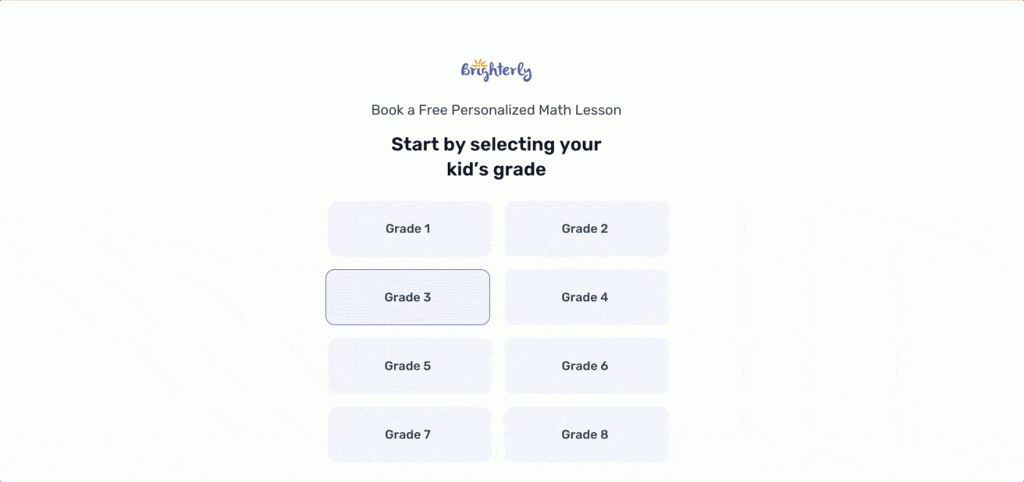
So why specifically will your child become engaged with math at Brighterly?
- Interactive lessons which will help them improve in math
- Our award-winning curriculum
- Personalization of their educational program
- Interesting 1 on 1 lessons with a tutor for elementary and middle schoolers
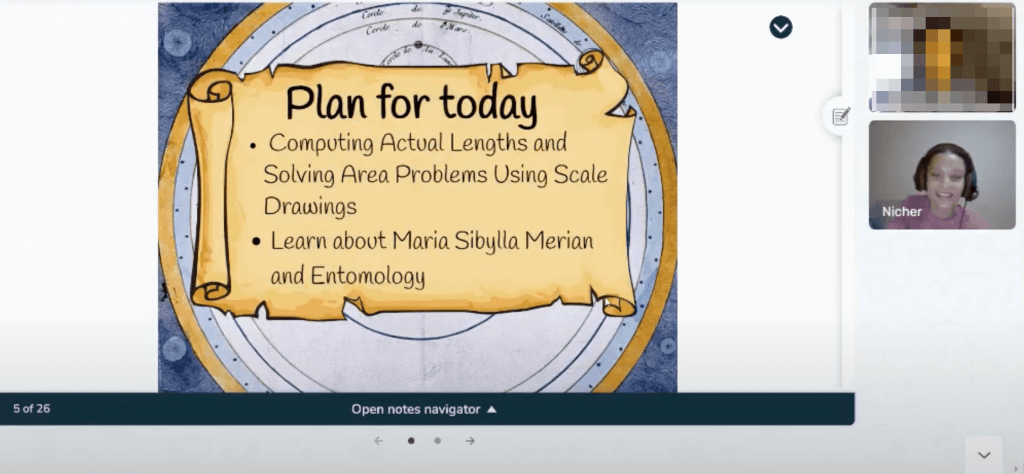
What else do you need to know to answer “How to get better at math?”. Let’s take a look at some essential things to focus on 👇
5 things you can do to improve your math skills
- Ask your teacher for help
- Master basic math skills
- Don’t miss homework
- Practice mental math
- Create a consistent learning routine
Ask your teacher for help
No matter what grade your child is in, it can be difficult for them to ask for help. Explain to your schooler that it is okay to misunderstand something and that they can always ask the teacher for help.

Tell your child that teachers can clarify confusing math questions, help them understand a specific problem or topic, and assist them with becoming good at math. They may be able to provide additional resources or explanations. And it’s worth pointing out that teachers will even be pleased that the learner is curious about mathematics.
Whether your youngster is stuck on a difficult question or just wants to improve in math, it is their teacher who can show them how to solve math problems step by step. If you’re wondering how to get better at math, ask the questions that will upgrade your academic performance.
Your children’s school teachers are a treasure. They are the ones who know how your child learns and can explain things specifically to them. By getting their feedback, they can correct mistakes and become even more successful.
Master basic math skills
Before moving on to tricks to become better at math, it is important to know the basic math topics perfectly. Your child cannot succeed in anything, including learning math, if they have no clue about the basics.
As you know, it’s the same with learning languages, biology, physics, or even music. For all of these, and especially math, is that they are academic subjects that rely on the basics to introduce successive topics.
What basics are needed to understand math inside and out?
To get better grades in math, students need to know
- addition,
- subtraction,
- division
- and multiplication
Note: If your child has no idea how to divide and add, or makes mistakes in basic tasks in middle school, then they will be left in the dark with algebra.
That’s why it’s so crucial to understand the basics and build on them in learning. Like pieces of a puzzle, these basic math topics and skills fit together and help solve a wide variety of math problems.
Don’t miss homework
If your child ever asks “Can I be good at math without doing homework”, the answer is a flat no. The information learned in class must be reinforced at home. Moreover, many schools will not personally study every detail with your child every time, and you as a parent need to pay attention, explain the topic to your child, and practice it with them.
How to get better at math by doing homework?
- Choose a professional and experienced math tutor who can engagingly explain each topic and help you with your homework.
- Watch videos on the specific math topic with your child. In today’s world, it’s very easy to find videos, for example, on YouTube, that provide clear explanations and examples.
- Use topic worksheets. For instance, at Brighterly you can find worksheets on various math topics from Pre-K to 8th grade.
- The final and most crucial step is “Practice”. For practice, students can use online calculators that are available on various online platforms, like Allmath.
Note: Doing homework is a powerful tool for success. Homework is like a practice field where you can hone your skills. It is a chance to apply knowledge and become even more confident in math.
How to make math easy? Limit distractions and make math fun!
In order to get better grades in math, it is vital to remove distractions from your child’s learning both at school and at home. If it is almost impossible to control this at public school, you as a parent can help your kid at home.
Minimizing distractions is one of the main strategies to streamline the study process, especially when learning mathematics. People can concentrate more effectively on math tasks if external interruptions and disturbances are reduced. This practice increases concentration, enhances comprehension of mathematical concepts, and leads to more productive and effective math learning.
In addition, it is also essential to make the learning atmosphere favorable and interactive to keep the learner interested. Whatever the child’s age, no one will grasp knowledge if it is introduced in a boring format.

If math is made engaging, children will become more motivated, involved, and ready to learn mathematical concepts, and they will succeed in being good at math.
Games, interactive activities, and creative tasks can turn mathematics into an exciting experience that fosters a positive attitude toward studying. This approach not only increases understanding of math but also develops critical thinking.
You can choose a number of educational websites for your child, and practice math topics together in a playful way.
Create a consistent learning routine
Another thing you can do to help your child get better at math is to create a regular schedule for them to practice and study math topics.
How to get better at math by creating a consistent learning routine at home?
- Establish a home study schedule and write it on a whiteboard, perhaps on a magnetic board near your child’s desk.
- Make a regular schedule with your child’s tutor. You should choose the same days and the same time.
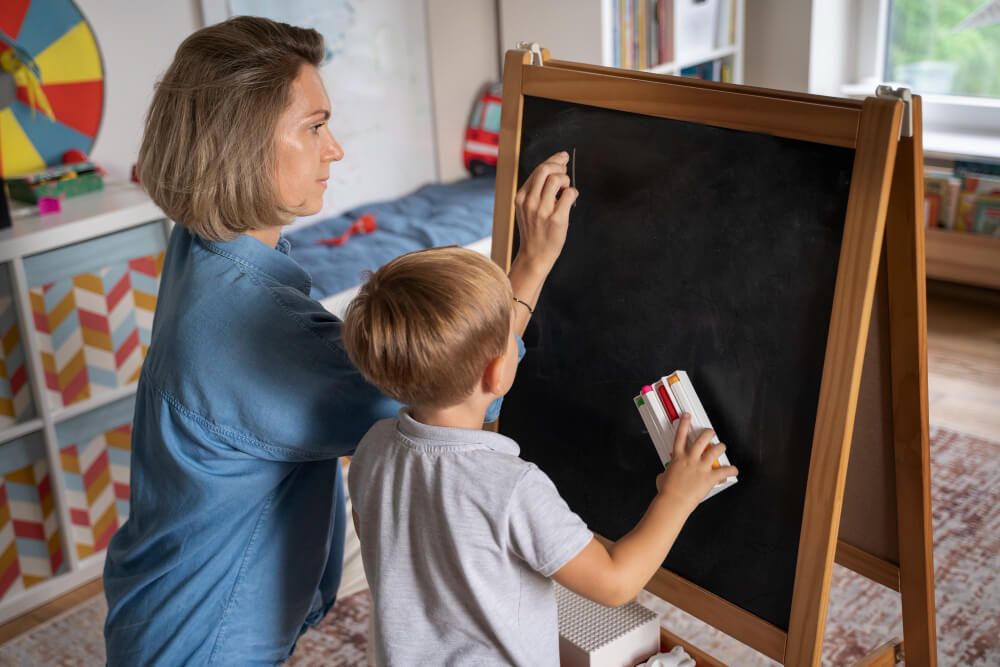
Establishing a consistent routine for your children has many benefits, such as promoting structure, increasing concentration, and strengthening memory. In addition, it helps develop important skills such as discipline and time management, and its benefits extend to other education areas.
A public school usually has a timetable, but if there is also a homework schedule that is done with you or a tutor on a regular basis, it helps to reduce the stress of learning math topics for the child, raises the level of confidence, and forms positive associations with this academic subject. In general, it creates an atmosphere conducive to successful and enjoyable learning.
How to get smarter in math overnight
To get smarter in math overnight, you can try sleeping with your textbook under your pillow – they say that knowledge is better absorbed in sleep! But seriously, it’s a good idea to read a couple of chapters before going to bed. Sometimes solutions to complex problems appear in your sleep when your brain is finally resting.
But of course, you should understand that it is impossible to improve your understanding of math overnight. This is a long-term process that cannot be accomplished by cramming a topic all night. The night is for rest so that your child can regain energy. During the day and after school, you can learn new topics and practice math problems. But remember not to overload your kid, take regular breaks so as not to lead your child to burnout with such a good goal.
Effective strategies can help students improve their math skills
- Improve your math skills with Brighterly’s math curriculum
- Get better grades in math by practicing mental math
- Use the “backwards design” method
- Get better grades: strategy for high schoolers
- Performing practical exercises every day
- Practical methods for solving problems
Educating children in math is a whole different process than teaching adults. They are like sponges, absorbing information into their young minds but quickly losing concentration either. If you want to succeed in teaching children the basics of math, you need to use these special techniques.
So, these effective strategies can help students improve their math skills. Let’s read more about how.
Improve your math skills with Brighterly’s math curriculum
If you want your youngster to do well in math, you should choose the best curriculum for them to improve their knowledge. Brighterly’s math curriculum will help you in this regard.
A Brighterly tutor who is assigned to a student doesn’t just work for an award-winning curriculum, they also personalize lessons and curriculum specifically for the student based on what grade they are in, their level of knowledge, and their personality and goals.
The tutors of this educational platform find it easy to approach students with ADHD and dyscalculia. They do their best to make the students interested in math and make the lessons yield the best results.
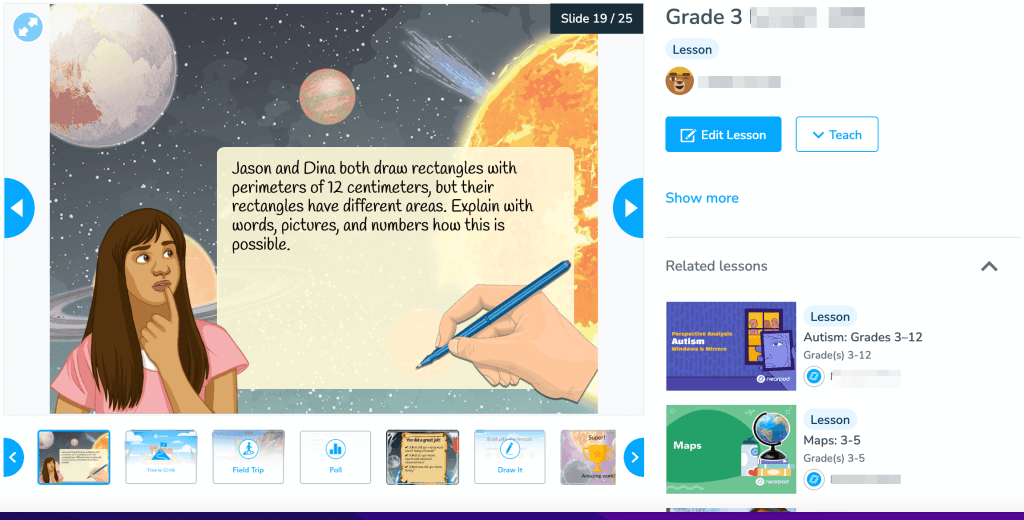
Brighterly provides a well-rounded and individualized education for students. The curriculum encourages interdisciplinary learning by making connections between subjects to develop a well-rounded perspective.
Brighterly’s educational program uses engaging videos, interactive games, and more. An emphasis on critical thinking fosters independent thinking and problem-solving skills.
Also, on the Brighterly website, you can find free worksheets (PreK-8) you can start practicing with your child.
Get better grades in math with practicing mental math
To boost math skills, it is helpful to teach your child mental math skills. This will allow them to count “in their head” without using pencil, paper, or electronic devices.
Mental math will be useful for kids and teens at school in quickly solving math problems and understanding math concepts.
Even when the child is solving problems in other academic subjects, it will have a positive impact on everyday life. The child will be able to quickly and without devices answer the questions “When should I leave to arrive on time?” or “What change will be left after buying groceries?”
Mental math develops thinking speed and computational efficiency, improves memory, boosts confidence, and develops math fluency by fostering critical thinking and exercising the brain.
How to get better at math via practicing mental math?
- Practice breaking the addition or subtraction problem into parts and solving it in parts. Remind your child that the problem should be solved in their head step by step.
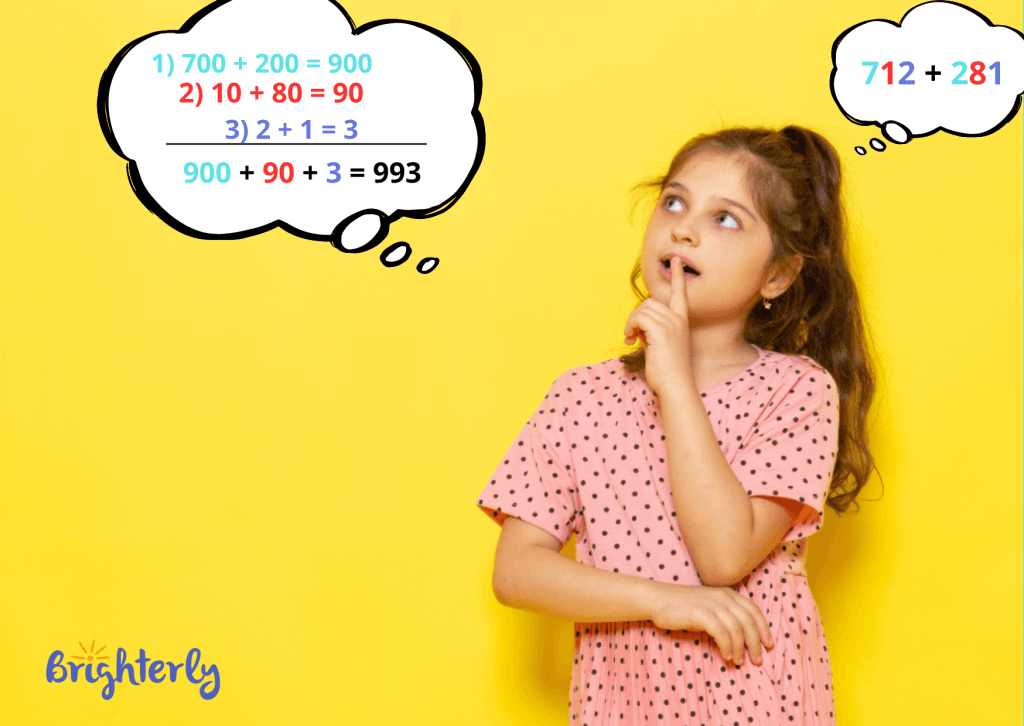
- The next time your child asks you “How do I get better at math,” practice this exercise with them.
Adjust to get round numbers, then correct after the problem is done. This makes it much easier for many children to solve addition, subtraction, or even multiplication problems.

- Practice adding many numbers at once with your youngster. To do this, you need to imagine the numbers in such a way as to get a convenient sum. Look for the numbers given at the final when adding numbers like “20 or 40”.
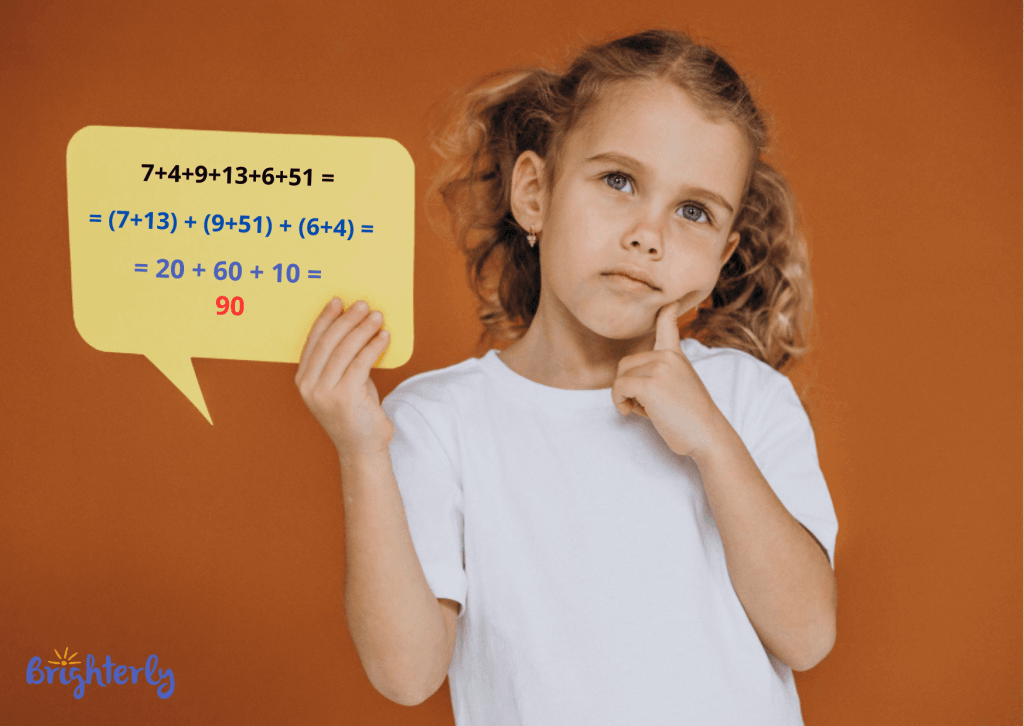
- Improve your math skills by multiplying from left to right.

Although everyone multiplies units from right to left in their notebooks, it’s easier to go the other way when you count in your head.
Get better at math with the “Backwards design” method
When solving math problems, often students will jump right into the calculations.
With the backwards design, the idea is that students first identify the final answer that they need to get. Then they identify and write out the steps to take to get there.
“It may seem time-consuming, but having a roadmap of sorts actually helps students reduce errors and waste less time in the long run.”
This method helps make the problem-solving process more clear, and also identifies gaps in understanding, before doing the calculations.
Get better grades: strategy for high schoolers

Most high school classes are based on algebra. In order to succeed in high school math, you’ll need to make sure you truly understand your basic algebra concepts.
One area that makes a huge difference, even until calculus and beyond is to understand the Order of Operations.
| Understanding why -2^2=-4 versus (-2)^2=4 or that 18 \div 2*3 is not 3, but in fact 27 [note the use of math fonts needed here ^2 are superscripts and \div is the division sign] will make a huge difference in your success. These and similar examples will help someone see the nuance, and develop a deeper understanding of mathematics in general. |
Building on this idea, having a solid understanding of terms used in math class begins to matter significantly once in high school. Mathematical definitions are written very specifically, but also very subtly. So, it’s possible to do well in math.
“When you meet a new term in math class, spend time understanding what the definition is saying.”
When you meet a new term in math class, spend time understanding what the definition is saying. Then try to come up with examples that follow the definitions. That's the easy part.
The hard part is coming up with similar examples that don't follow the definitions and understanding why they don't follow that definition. For example, is 2 an even number? What about 0? Again, deeply understanding these ideas will accelerate mathematical understanding and lead to great success. The definition of a function (without using the vertical line test) is another place to practice this skill.
Performing practical exercises every day
The most effective strategy on how to become better at math is to practice math every day. Even if there was no math lesson at school today, teach your child to practice math problems daily, and spend at least 15-30 minutes on it.
How to get better at math via everyday practicing
- Use manipulatives for counting and basic operations
- Participate in math games and puzzles
- Apply measurements in cooking and baking
- Explore geometry by constructing buildings and structures
- Create graphs and charts based on real data
- Install math in art and the outdoors
- Weave math concepts into stories and math problem-solving
These activities make abstract mathematical ideas tangible and engaging. By creating a dynamic learning environment, hands-on activities foster a deeper understanding of math concepts and instill a love of learning in children.
Also, to be better at math, your child can make the most of practice tests.
- Start by simulating real-life testing conditions, adhering to time constraints, and creating a focused environment
- Use practice tests as diagnostic tools to identify strengths and weaknesses
- Analyze your schooler’s incorrect answers
- Highlight priority topics for study
Note: It is good to do practice tests periodically to monitor progress. You can gradually increase the difficulty of the tasks for your child.
Get math grade up via practical methods for solving problems
Practical problem-solving techniques are invaluable skills that allow a schooler to approach problems effectively and find ways to solve them. To teach children to become better at solving math problems, you need to use these practical methods 👇
1.Increase math skills with a structured approach to completing math tasks
- When you teach children math, you should focus on breaking down complex problems into manageable steps, nurturing a structured approach to math task solving. Start by understanding the nature of the task.

- Prioritize where to start, then simplify each segment by looking at the simpler aspects before moving on to the more complex elements.
- Consistently assessing progress and making necessary adjustments provides a solid foundation.
In the end, outlining a step-by-step process hones communication skills and understanding, cultivating the invaluable ability to tackle complex math problems with confidence. This method is the easiest way to teach children to become better at math.
2. Connect math to real life
Math is closely connected to everyday life. Understanding this will help your child get better at math.
Math is fundamental to planning a budget, measuring ingredients for cooking, calculating distances, comparing prices when shopping, tracking health and fitness, and deciphering technology.
If you want children to learn how to do better in math competitions, you have to start connecting math to real life.
Help your child get better at math: conclusion
Determining how to become a math expert is not easy, but with our article, it will be easy for you.
Whether your child is in elementary or high school, your support is very important to them. Don’t just monitor your schooler’s progress in math, but help them with their homework and general studies. Your attention to your child, regular practice, and the introduction of interesting interactive learning methods will definitely help your youngster get better at math.
We offer the assistance of our educational platform, where you can find a top-notch math tutor who will connect with your child and help them fall in love with the subject. Click me.














